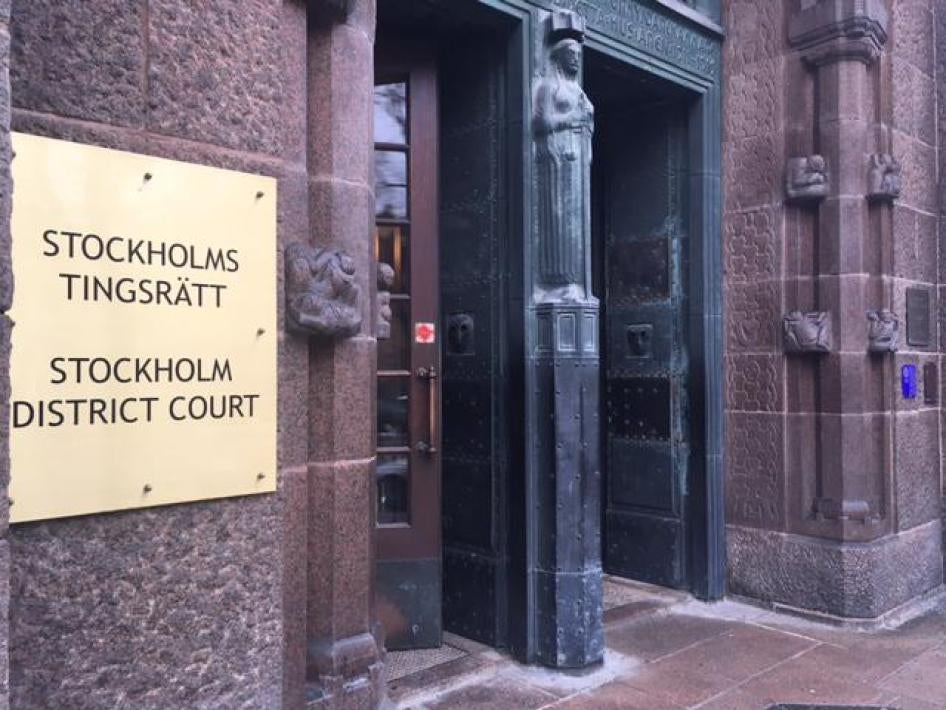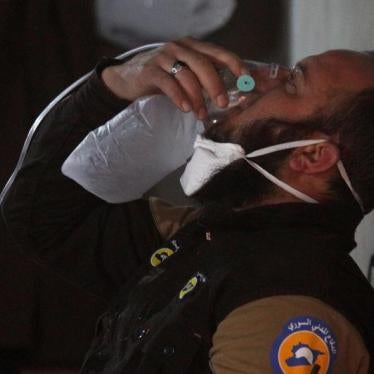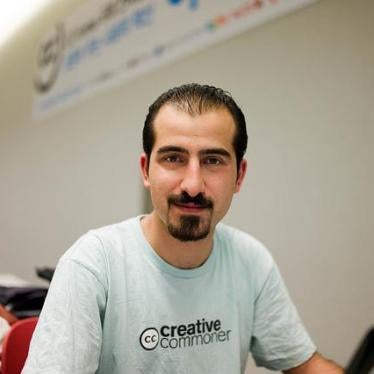The photograph is disturbing. A young man in military fatigues is standing on dead bodies looking victorious. The posture of the Syrian soldier, with a grin suggesting pride and his military boot on a victim’s chest, suggests domination. A hunter with his prey. Except the prey is a man wearing civilian clothes with blood on his head.
The Syrian conflict has generated an endless stream of horrible photos and footage. It is often described as the first YouTube war – with little professional journalistic coverage but non-stop footage of abuses captured by locals’ phones. From the shaky footage of soldiers and shabbiha beating and torturing detainees in the early days to the slick and sick ISIS productions of executions, one common thread runs through these videos: their utter dehumanization of the victims.
Why did the soldier have himself photographed in this posture? To spread fear among his enemies, brag to his friends, or create a souvenir for himself? What we know is that he did it because he believed – like all the others who film themselves committing horrible crimes – he would get away with it.
And he would have, if not for Syrian activists and prosecutors in Sweden. On September 14, Swedish prosecutors charged the soldier, identified as Muhammad Abdullah, with violating the laws of war. An informal group of Syrian activists tracked Abdullah down in Sweden based on his Facebook postings and brought him to the attention of the prosecutors.
In Sweden, investigators and prosecutors have used their domestic criminal law, based on the legal principle known as “universal jurisdiction,” to prosecute certain international crimes committed in Syria. Investigating crimes that take place outside your jurisdiction is not easy. A Swedish prosecutor’s initial effort to bring charges against Abdullah last year for the execution of the men he stands atop in the photo failed for lack of evidence. Yesterday’s indictment uses existing evidence to charge him for “outrage upon personal dignity,” defined to include humiliating, degrading, or otherwise violating the dignity of a dead body.
Pursuing accountability for violating the dignity of a dead body may strike some as marginal in the carnage that is Syria. The opposite is true. By recognizing the inherent dignity of the victims even after their death, the Swedish prosecutor is challenging the collective indifference to Syrians’ fate. Syrian victims are mostly faceless, briefly appearing in the media as statistics. Reminding people that even the dead have dignity is a small but worthy effort to bring back some humanity to the Syrian conflict. The trial is scheduled for September 18.
|
Dispatches
A Move to Restore Dignity to Syria’s Victims
Small Case in Sweden a Worthy Start
Your tax deductible gift can help stop human rights violations and save lives around the world.
Region / Country
Topic
Most Viewed
-

-
November 25, 2019
A Dirty Investment

-
April 27, 2021
A Threshold Crossed

-
February 20, 2026
Abuses in Cameroon After US Deports Third-Country Nationals

-
January 23, 2018
Hidden Chains





